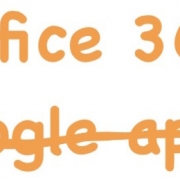What is Zoom? How does it work? Is it safe? There have been suggestions that competitors Microsoft and Google are safer applications with Microsoft Teams and Google Teamwork.
Zoom has quickly become a household name. It is a cloud-based video conferencing application where you can host calls. Currently it is mainly being used by businesses to host meetings with colleagues and clients who are working remotely or internationally whilst the UK is in lockdown. However, an increasing number of people have been using it for virtual social catch ups.
The calls boast high quality video and audio, are easy to use, and includes screen sharing and text chat. You do not have to have an account with Zoom to join a chat, although you will need one to host a video conference. There is also a premium version which can house up to 1,000 people with call recording and unlimited phone calls.
Zoom is cloud based: it is stored, managed and processed on a network of remote servers hosted on the internet, rather than local servers or personal computers. This means the application is available on demand via the internet.
However, are there security problems with using a cloud-based system?
The firm has faced severe criticism for its lack of security. There is a lack of encryption measures and other privacy-related issues, including reports that hackers were able to listen into calls, record meetings which were available publicly on the internet and un-invited attendees were able to hack calls. Some of these security issues have been addressed and Zoom has appointed Alex Stamos, former Facebook security chief. Yet, there are still concerns.
Google has confirmed its banning of the use of Zoom software from its employee’s laptops citing security and privacy concerns as the issue.
Zoom has been banned by Taiwan’s government after news that Zoom’s traffic was “mistakenly” routed through Beijing. China does not recognise Taiwan’s independence and considers it a rebel province. Zoom said that this was a mistake and issued an apology. Despite this response, Taiwan has informed its institutions that it should use another software.
Parts of the German government were soon to follow Taiwan and has banned Zoom from official use. This is because of security and data weaknesses, so is only to be used in an emergency or on private machines. Additionally, schools in the US have switched to Microsoft, SpaceX barred the use by its officials, and Canada’s electronic surveillance agency did not approve the platform for “any government discussions that require secure communications”. However, UK cabinet continue to use it for remote meetings.
What are your thoughts on the service? Will you continue to use Zoom? Let us know your thoughts in the comments.











Leave a Reply
Want to join the discussion?Feel free to contribute!